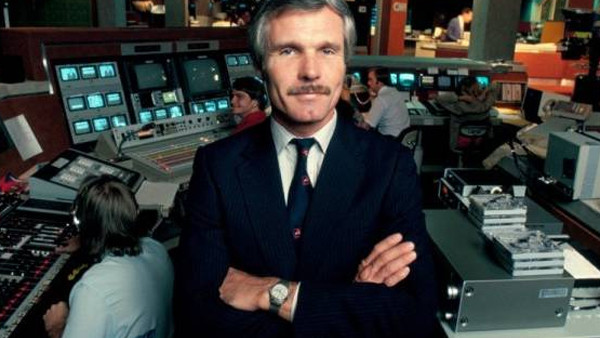Former WCW Owner Ted Turner Fighting Brain Illness
"I can't remember what my disease is."

Billionaire media mogul and one-time owner of defunct wrestling promotion WCW, Ted Turner, has revealed he is suffering from a brain disease known as Lewy body dementia.
The 79-year old detailed his condition during a candid interview with CBS Sunday Morning:
"It's a mild case of what people have as Alzheimer's. It's similar to that. But not nearly as bad. Alzheimer's is fatal. Thank goodness I don't have that, but I also have got - the one that's - I can't remember the name of it. Dementia. I can't remember what my disease is."
According to the Alzheimer's Association, Turner's illness is a type of progressive dementia which leads to decline in thinking, reasoning and independent function. It's caused by "abnormal microscopic deposits" that gradually damage brain cells.
Turner, who was famous for his outspoken, erratic comments, also revealed that he was initially diagnosed with manic depression as an explanation for his "euphoric highs and dark lows."
Turner, who pioneered the superstation concept when he founded WTBS, is best known to wrestling fans as the moneybags media mogul who bankrolled World Championship Wrestling from his purchase in 1988 until its eventual takeover by AOL Time Warner thirteen years later.
Though he took a relatively hands-off role in running the company, Turner opened his considerable cheque book in 1995 to allow Eric Bischoff to go head-to-head with northern rivals WWF. WCW's financial doping led to a series of skits from Stamford lampooning Turner and his ageing defectors, the chairman depicted as the decrepit 'Billionaire Ted'. It was sorry stuff.